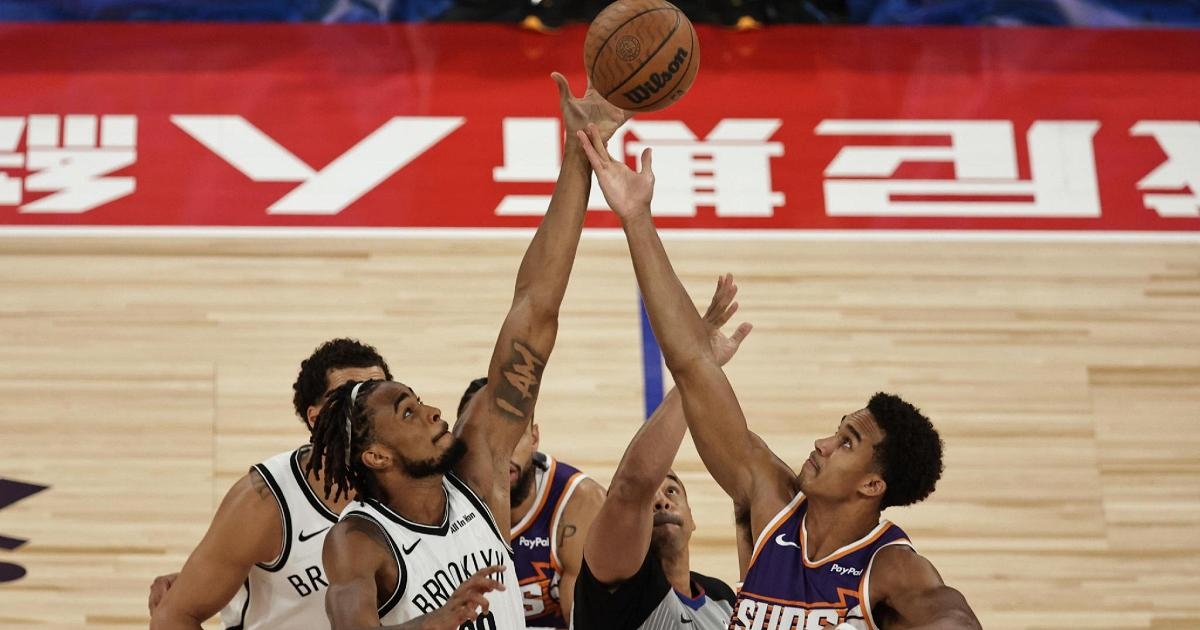Operation Thaw: After the Ping Pong in China, the NBA Returns

After the now-famous table tennis match of April 14, 1971, in which American athletes landed in Beijing to challenge a Chinese team in the name of diplomacy to thaw relations between the US and China, comes the "basketball format." After six years, the NBA returned to China, with preseason games played in Macau in October between the Brooklyn Nets and the Phoenix Suns. Amid trade tensions and the technological war between Washington and Beijing, the return of US basketball was a gesture of normalization that in some ways anticipated the meeting between Donald Trump and Xi Jinping a few days ago. An event of great symbolic importance because it marked the official resumption of relations between China and the NBA, but not only that, after the great freeze that began in 2019. Exactly six years ago, a tweet by Daryl Morey (then general manager of the Houston Rockets, Yao Ming's team) in support of the Hong Kong protesters had unleashed a diplomatic and economic storm, canceling games and suspending ongoing multi-million dollar agreements between the NBA and the Asian giant.
Sport, however, knows no borders, writes the French newspaper Le Monde, which recalls that the American league has never completely abandoned the Chinese market: with the mediation of Joseph Tsai, president of Alibaba and owner of the Brooklyn Nets, and the Adelson family, closely linked to Trump, the NBA has orchestrated a gradual return.
Beijing benefits: the resumption of matches supports domestic consumption and reinforces the country's image of openness. This was also confirmed by the outcry surrounding Victor Wembanyama's summer visit to a Shaolin temple in Henan, widely reported by local media. With a fan base of between 300 and 450 million, basketball in China surpasses even soccer, which is experiencing a crisis. In 2024, according to S&P Global, 52% of Chinese people had watched an NBA game, compared to 23% in the United States and 10% in Europe. As early as 1979, the Washington Bullets had played against local teams and a team from Ningbo, in an attempt to normalize diplomatic relations initiated by Deng Xiaoping. Le Monde recalls that David Stern (the NBA's patron) sold the broadcast rights to CCTV in 1985. "It was the blessed era of Michael Jordan and Magic Johnson. Many Chinese stopped working to watch them on TV," explained Chris Petersen-Clausen, a documentary filmmaker in Shanghai. Wang Zhizhi and then Yao Ming brought the American dream beyond the Wall, often donating a portion of their salaries to the Chinese authorities. In 2025, Yang Hansen, a 20-year-old and the only Chinese player in the NBA since 2019, saw his first game celebrated in the pages of China Daily. In Beijing, Wangfujing is home to the world's largest NBA Store outside the United States, and LeBron James has his own shrine: statues, life-size photographs, collectible jerseys and sneakers. Chinese students stop there before exploring Tsinghua University or Beijing University. "Sometimes the NBA in China seems like just another fashion brand," Petersen-Clausen admitted.
At the last match in Hangzhou, tickets worth €228 were sold out in four seconds, a "great sporting spectacle that brings together the blue and red seas," as the organizer announced. A bridge between two global giants, but one that will need to be carefully managed, as CNN emphasizes, quoting an expert: "There's a thaw, but a misstep by a player or coach, a superficial observation like Morey's, could reignite tensions," said Professor Paul Argenti of Dartmouth's Tuck School of Business.
Rai News 24



